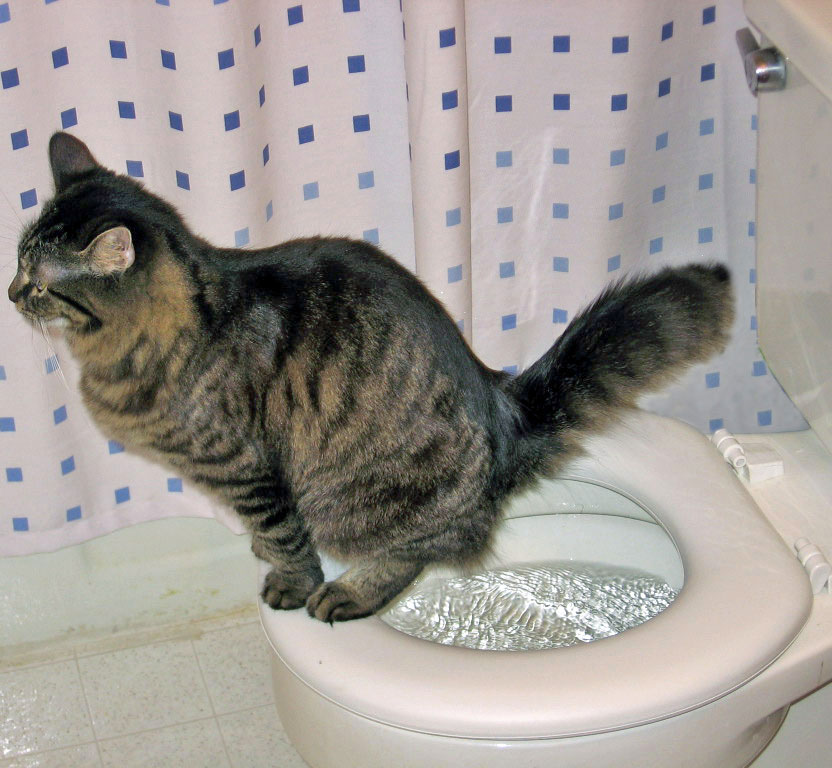Reasons You Must Never Flush Cat Poop Down Your Toilet - Important Facts
Reasons You Must Never Flush Cat Poop Down Your Toilet - Important Facts
Blog Article
The publisher is making a number of great annotation on Can You Flush Cat Poo or Litter Down the Toilet? as a whole in this content in the next paragraphs.

Intro
As feline owners, it's essential to bear in mind exactly how we dispose of our feline buddies' waste. While it may seem hassle-free to purge feline poop down the toilet, this practice can have detrimental effects for both the environment and human wellness.
Alternatives to Flushing
Luckily, there are more secure and a lot more accountable methods to deal with pet cat poop. Consider the adhering to options:
1. Scoop and Dispose in Trash
One of the most common method of dealing with pet cat poop is to scoop it right into a naturally degradable bag and throw it in the garbage. Make sure to utilize a dedicated trash inside story and throw away the waste quickly.
2. Use Biodegradable Litter
Go with eco-friendly cat clutter made from products such as corn or wheat. These litters are eco-friendly and can be securely taken care of in the trash.
3. Bury in the Yard
If you have a lawn, take into consideration hiding pet cat waste in an assigned area far from veggie gardens and water sources. Make certain to dig deep enough to avoid contamination of groundwater.
4. Install a Pet Waste Disposal System
Purchase a pet dog waste disposal system especially designed for feline waste. These systems make use of enzymes to break down the waste, reducing odor and environmental effect.
Wellness Risks
Along with environmental problems, purging cat waste can also position health and wellness threats to humans. Cat feces may consist of Toxoplasma gondii, a parasite that can trigger toxoplasmosis-- a possibly extreme illness, especially for expectant women and individuals with weakened immune systems.
Environmental Impact
Purging cat poop presents damaging microorganisms and bloodsuckers right into the water, posturing a significant risk to water ecological communities. These contaminants can negatively affect marine life and compromise water quality.
Conclusion
Responsible animal ownership extends beyond providing food and shelter-- it additionally entails correct waste administration. By refraining from flushing cat poop down the toilet and opting for alternative disposal methods, we can reduce our environmental footprint and secure human health and wellness.
Why You Should Never Flush Cat Poop Down the Toilet
A rose by any other name might smell as sweet, but not all poop is created equal. Toilets, and our sewage systems, are designed for human excrement, not animal waste. It might seem like it couldn’t hurt to toss cat feces into the loo, but it’s not a good idea to flush cat poop in the toilet.
First and foremost, assuming your cat uses a litter box, any waste is going to have litter on it. And even the smallest amount of litter can wreak havoc on plumbing.
Over time, small amounts build up, filling up your septic system. Most litter sold today is clumping; it is made from a type of clay that hardens when it gets wet. Ever tried to scrape old clumps from the bottom of a litter box? You know just how cement-hard it can get!
Now imagine just a small clump of that stuck in your pipes. A simple de-clogger like Drano isn’t going to cut it. And that means it’s going to cost you big time to fix it.
Parasitic Contamination
Believe it or not, your healthy kitty may be harboring a nasty parasite. Only cats excrete Toxoplasma in their feces. Yet it rarely causes serious health issues in the cats that are infected. Most people will be fine too if infected. Only pregnant women and people with compromised immune systems are at risk. (If you’ve ever heard how women who are expecting are excused from litter cleaning duty, Toxoplasma is why.)
But other animals may have a problem if infected with the parasite. And human water treatment systems aren’t designed to handle it. As a result, the systems don’t remove the parasite before discharging wastewater into local waterways. Fish, shellfish, and other marine life — otters in particular — are susceptible to toxoplasma. If exposed, most will end up with brain damage and many will die.
Depending on the species of fish, they may end up on someone’s fish hook and, ultimately on someone’s dinner plate. If that someone has a chronic illness, they’re at risk.
Skip the Toilet Training
We know there are folks out there who like to toilet train their cats. And we give them props, it takes a lot of work. But thanks to the toxoplasma, it’s not a good idea.

We were guided to that editorial about Don’t flush cat feces down the toilet from an acquaintance on our other web blog. Sharing is caring. Helping people is fun. Many thanks for going through it.
Schedule A Free Estimate Report this page